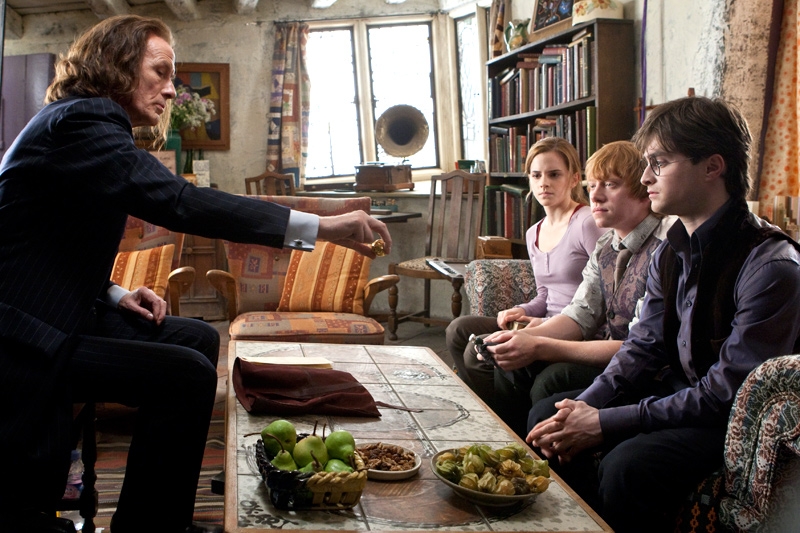
The Internet hardly needs any more comment about Harry Potter and the Deathly Hallows, Part 2 (2011), so I will try to keep this short.
The first word that comes to mind to describe this final film episode is discipline. The film is disciplined in length, in the use of effects, in the portrayal of sentiment and in its reinforcement of the importance of duty and self-sacrifice. Perhaps only the English could make such a restrained epic, for despite all the American money, the Potter films have remained fairly resolutely English (Chris Columbus and John Williams notwithstanding).
Compared to Return of the King's 257 endless endings, the Potter series ends on a quiet, austere note, a mere reassurance that life continues -- no guarantees, just continuation. The grand battles last as long as they need to make the essential points clear, resisting the Michael Bay-induced tendency for these sequences to go clunking on and on, with more and more bright flashes and loud noises from the soundtrack. Which reminds me -- Alexandre Desplat is emerging as one of the most thoughtful, character-sensitive, story-savvy composers working today. A look at his filmography will clarify what I mean. ("Emerging" after a mere 25 years!)
Everyone has remarked at how many distinguished British actors have appeared in the series. How do the excluded ones feel? Is Ian McKellen moping around with Daniel Day-Lewis, Bob Hoskins and Helen Mirren because they never got a shot on the Hogwarts faculty? Is it hard not to be one of the Cool Kids? (Or is it cooler NOT to have been in the series?) Interestingly, the filmmakers deflected an opportunity for stunt star casting in the role of Dumbledore's brother Abeforth. Ciaran Hinds is a fine actor, downright brilliant in The Eclipse, but hardly a publicity or ticket-sales magnet.
Is Daniel Radcliffe's improved performance in this installment attributable to greater maturity, the accumulation of skills or his well-publicized abstention from alcohol? Or some combination thereof?
Finally, I'm a schoolteacher, so I can't leave the subject without summarizing the educational impact of the Harry Potter series, books and films. To me, the stories are built on a wonderful metaphor of the process of maturing, of leaving family and familiar places, developing one's powers and venturing into the world. Harry is almost a perfect Joseph Campbell hero, which could make him a valuable gateway to meeting Odysseus and our other long-established heroes. But it was all summed up in a lovely open letter to J.K. Rowling which can be read in its entirety here. Here is the passage that I found most striking:
You are...responsible for turning a whole generation of kids into avid readers, and you used your books to teach important lessons. Your readers learned about things like how much harder it can be to stand up to your friends than standing up to an enemy. There were civics lessons about the important role free press plays in a society, particularly how it lets the public know about the actions of their government. You have showed us that it's important to fight for the disenfranchised, even if no one understands why you're fighting. You showed us what can happen when nearly absolute power is put into the wrong hands. Most importantly, you've taught us that it's up to each of us individually to make the choice between doing what is right and doing what is easy — and it is that choice that really determines who we are.





No comments:
Post a Comment